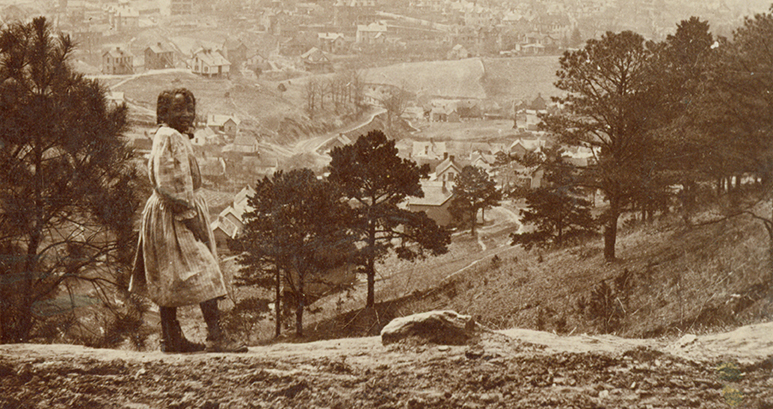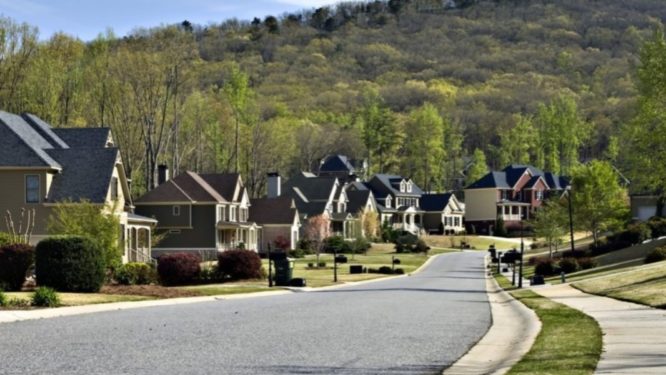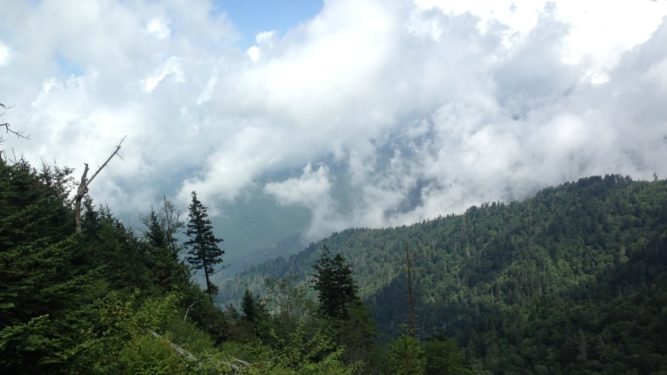Happening Now
The City’s Living Asheville Comprehensive Plan calls for identifying strategies to honor the history and contributions of the African American community in Asheville. As a baseline for more fully documenting the rich history of the African American communities that have thrived here for generations, the Planning & Urban Design Department is currently facilitating an architectural survey of the city’s historically African American neighborhoods.
What is an Architectural Survey?
An architectural survey is the systematic process of identifying and recording historic buildings, structures, objects, districts, and sites (both historic and prehistoric) in a given geographic or thematic area.
Why Undertake a Survey?
Documentation of the built environment as it relates to local history is an important tool for preservation of neighborhood and community character. Survey information can help inform related projects and is important in understanding the community’s historical narrative.
How Can Survey Information Be Used?
Survey information can be used to identify historic resources that require further study, individual properties and/or districts eligible for listing in the National Register of Historic Places, and individual properties and/or districts eligible for local historic designation. Architectural surveys are also critical to long range planning for the community.
Background
In partnership with the community, Planning staff has identified the imperative need for documentation of African American heritage resources within the city. The need to identify these resources is essential to documenting, understanding and illustrating a more comprehensive narrative of Asheville’s unique sense of place and to celebrate and honor local African American history.
Historic resources in Asheville have been documented over the course of several survey projects, beginning in the late 1970s through the most recent survey update occurring from 2007-2012. These efforts have only nominally documented historic resources significant to the city’s African American community. Few resources have been recorded across the city’s historically African American neighborhoods, including the East End/Valley Street, Livingston Heights, Southside, West End/Clingman Avenue, South French Broad, Burton Street, St. Johns-A-Baptists, Shiloh, Hillcrest, Stumptown, and Pisgah View. It is anticipated that survey of all resources related to African American heritage may require additional grant funding. This is the initial phase of the survey work, and will include contextual research and documentation, oral interviews, prioritization of areas for survey, and survey of roughly 75 resources and identification of future survey phases and/or other related projects.
The city has contracted with Owen & Eastlake, Ltd., a historic preservation consulting firm based out of Columbus, Ohio. Owen & Eastlake specializes in history and architectural history and focuses on African American, ethnic and civil rights history and sites.
In early 2020, the city formed an agreement with Acme Preservation Services to make necessary revisions to the draft survey report submitted in 2019 by Owen & Eastlake. The city anticipates publishing the final report in Summer 2022.
Timeline
February 2018 – Planning & Urban Design staff applied for a Historic Preservation Fund (HPF) federal pass-through grant to initiate the project.
June 2018 – City was awarded HPF grant for $12,000, with a match of $7,000 allocated by the Planning & Urban Design Department.
September 2018 – Request for Proposals (RFP) posted.
December 2018 – Revised RFP posted.
February 2019 – Consultant selected.
March 2019 – Community meetings.
Fall 2019 – Review of draft survey report.
Spring 2020 – Spring 2022 – Revise final draft survey report.
Fall 2022 – Publication of final draft survey report.
FINAL DRAFT – AFRICAN AMERICAN HERITAGE RESOURCE SURVEY REPORT
Supporting Documents
Staff Report to City Council – August 28, 2018
Owen & Eastlake response to RFP
Contact Information
Alex Cole, Urban Planner III – Historic Preservation
828-259-5638
Photo Credit: North Carolina Collection, Pack Memorial Public Library, Asheville, North Carolina.







